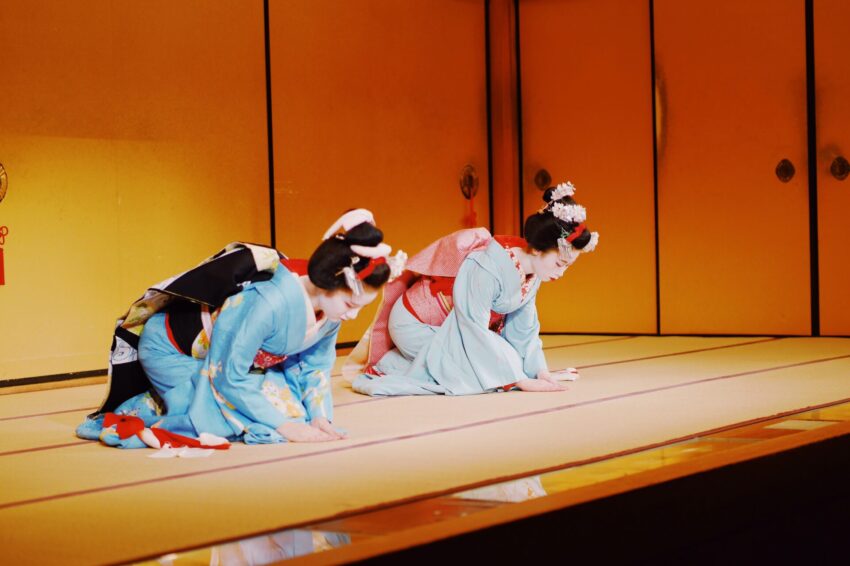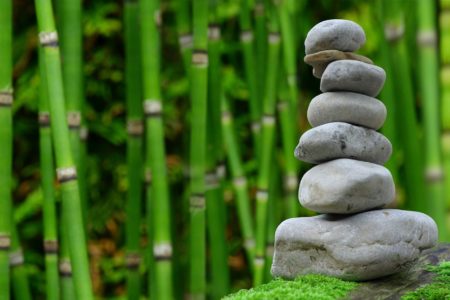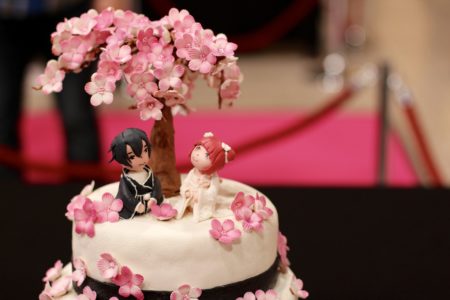Take a Bow: How Japan Changed Me

Top photo: wang xi on Unsplash
Sure, when you live overseas you expect some things will be different from the life you had in your home country. That’s part of the excitement. For Japan, I expected that to be conveyor-belt sushi dinners and occasionally seeing people wear kimono (both of which certainly happen from time to time). But what I didn’t anticipate were the subtle ways I began to imbibe Japanese culture.
After one month of living in Japan, of course your chopstick skills will go through the roof. You expect that. Your Japanese language proficiency increases without much effort (although formal study is highly recommended to make significant gains). You go from timidly saying konnichiwa and arigatou to understanding the convenience store clerk when they ask if you want your meal heated up. You can guess those changes will happen before you get here. What you don’t expect, however, is to be someday yelling at the TV screen when your favorite sumo rikishi (wrestler) is robbed or eating natto (fermented soybeans) for breakfast every morning and actually liking it. How did this happen?
One case in point concerns the act of bowing. Bowing is one aspect of Japanese etiquette that is well known worldwide and expected upon arrival. What is amazing about this peculiar cultural phenomenon, though, is how it gradually seeps into your subconscious and becomes second nature. Everyone knows to bow when you meet someone for the first time.
Even fresh-off-the-plane foreign visitors know this. You study these things in a guidebook or on YouTube before you arrive. You even laugh – politely and to yourself – the first time you catch a glimpse of a Japanese person giving a slight head bow while talking on the phone. What did I just see? Why would they do that? The other person can’t see you. And then, it happens. Enough time passed, and one day, I eventually caught myself doing the very thing I once inwardly mocked. I was head bowing while talking to my boss… while on the phone. I think I’m turning Japanese, I really think so.
I had read a lot about “culture shock” before I came to Japan the first time. Almost any literature on this topic will at some point cover the Japanese practice of removing one’s shoes before entering a house. Ok, that sounds fair. Sounds pretty clean actually. The more I thought about it, I kind of realized, “hmm, my own culture is a little bit gross for walking around in our homes wearing the same shoes we had on outside.” The supposed “shock” of having to frequently remove my shoes didn’t come as much of a surprise or burden at all.
Then, without reading about it, I discovered “reverse culture shock.” I took a trip back to my home country of America and was appalled to see my family members sauntering around the house. Wearing shoes! On the carpet! I was mortified. Had I turned Japanese? I think I might have a little.
Still, there was one aspect of Japanese life that I was certain would never take hold in my thoughts or actions: slurping. In Japan, one should noisily slurp one’s ramen noodles to (a) cool the piping hot broth and (b) as an indication of satisfaction to the chef. Not me, I thought. I’ll never publicly slurp my noodles. It goes against childhood lessons learned at the dinner table.
I will be understanding of others, of course. It is their culture and I am in it. When in Rome, do as the Romans, as they say; so when in Japan… ok, I’ll tolerate ramen noodle slurping. I would observe, but not participate. I mean, how could this seemingly eccentric behavior ever become part of my delicate, refined dining repertoire?
It starts at home when no one else is around. It starts with that cup of instant ramen you get at the convenience store. You practice when you are sure no one can hear. Eventually, seemingly out of nowhere, all of your inner impulses to resist suddenly fade away and you slurp with reckless abandon! The transformation was complete. I had become Japanese.
So, I might have turned (a little bit) Japanese from my time here. Is that such a bad thing? Not at all. I am grateful for my experiences and transformations. Aside from the specific cultural adaptations, the transformation itself – i.e., just the gradual act of personally evolving – has made me a more mindful person and provided many opportunities to laugh at myself. For that (and for the sumo and natto), I will always be grateful to Japan.
Photo Credits:
Top photo: wang xi on Unsplash
Previous photos provided by Mark Reid courtesy of Smithsonian.
All other content (text) created by the original author and © 2021 MUSUBI by Borderlink
RELATED
-

At a Glance: 3 Treasures to Find in Konan, Shiga
Top photo: Sheena Honjo (original author), used with permission Many people are looking for something interest… -

Come for the Shinto, Stay for the Zen
Top Image: Schäferle via Pixabay Buddhist temple in Yamaguchi prefecture.What’s the difference between a shrin… -

Married in (and to) Japan
Top photo: Peggy_Marco on Pixabay My wife and I first arrived in Tokyo, Japan as a newlyweds. We’ve now …
PEOPLE

Mark Reid
From the US
Has called Japan his home for many years!


